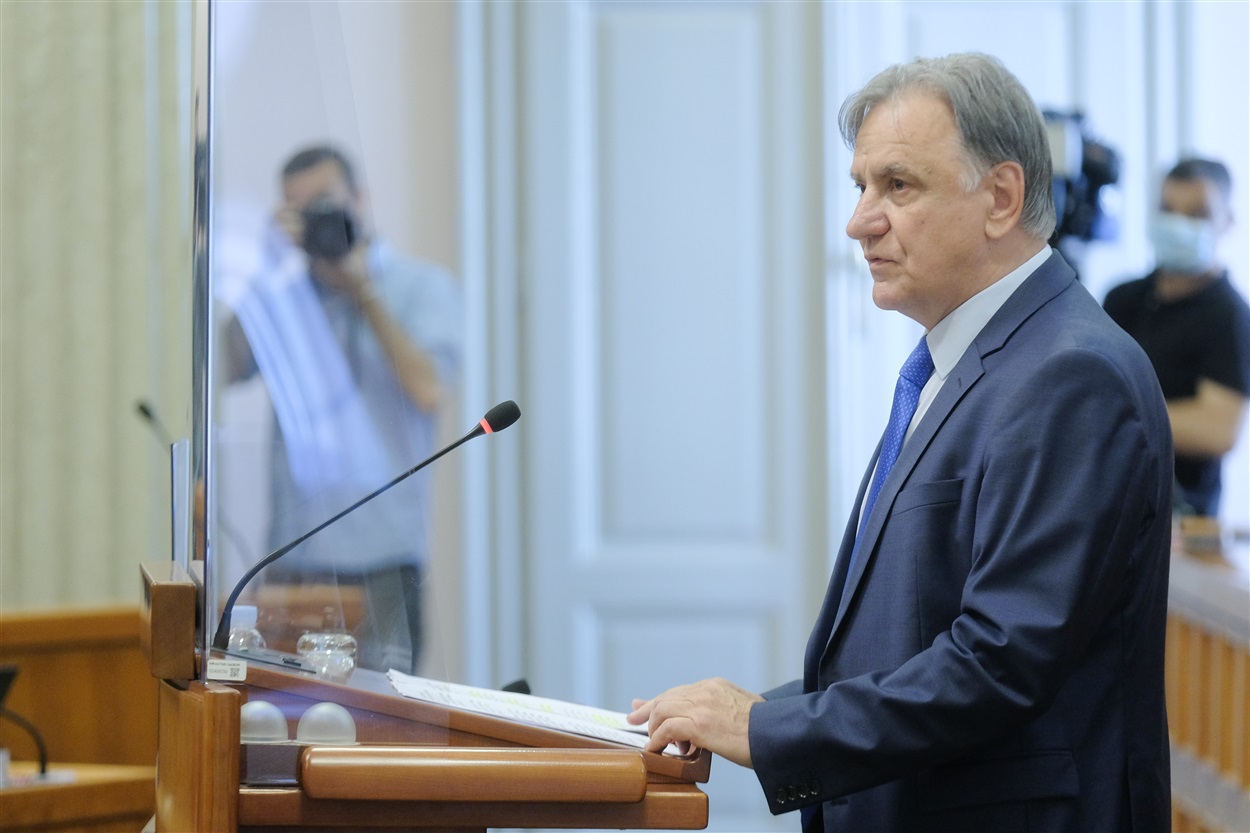
Zagreb - The Croatian Parliament on Wednesday took note of reports by the Ombudswoman for the three last years, which, among other things, warn that recommendations by the Office of the Ombudswoman are increasingly ignored.
The Office of the Ombudswoman received around 10,500 complaints in the last three years, and they mostly referred to discrimination, healthcare, labour relations, judiciary, and prison inmates' complaints.
The pandemic has brought to light problems regarding the right to healthcare, workers' rights, the difficult status of the elderly, the social exclusion and inequality of the Roma minority, and problems related to property-rights relations in the context of post-earthquake reconstruction.
In 2020, the government failed to respond to as much as 60% of the Ombudswoman's recommendations.
Ombudswoman's report on the right to healthy life endorsed by 112 votes
The parliament adopted with 112 votes in favour of the Ombudswoman's report on the right to a healthy life and climate change in Croatia in the period from 2013 to 2020 in the context of the global climate movement and the coronavirus pandemic.
It also voted in a strategy of low-carbon development in the period until 2030 with an outlook for the period until 2050, which should prompt changes in the Croatian society that would contribute to reducing greenhouse gas emissions, in line with the European goal of making the EU climate neutral by 2050.
The parliament also adopted, under a fast-track procedure, a law on intellectual property fees which abolishes administrative fees in the field of intellectual property, as a result of which the burden on the business sector will be reduced by around HRK 600,000.
The parliament unanimously endorsed an international agreement related to illegal maritime trade aimed at improving cooperation between countries in combating maritime drug trafficking.
Parliament adopts report by State Audit Office
The parliament also adopted by a majority vote a report on the work of the State Audit Office in 2020, which shows that the office submitted 185 audit reports to the parliament in 2020. Of those reports,160 referred to financial audits and 25 to audits of efficiency in the management of public funds.
Chief State Auditor Ivan Klešić said in Parliament earlier in the day that he had received a notification from the Office of the Chief State Prosecutor (DORH) saying that it had issued 23 indictments against persons and political parties reported by his office to DORH. Klešić did not name the persons and political parties in question.
Asked by HDZ MP Branka Juričev Martinčev to state what the annual audit of 44 political parties, including the HDZ, had shown, Klešić said that four parties had been given qualified opinions.
In 2019 the HDZ and the SDP, which together had revenue accounting for 59.4% of total revenue, were given unqualified opinions. Four parties were given qualified opinions: BUZ, Independents for Croatia, Pametno and the Human Shield, Klešić said, confirming that in the past seven years the HDZ had been given unqualified opinions.
Audits check only what is in the books, not what was carried in bags, Social Democrat Željko Pavić remarked.
As the key problem in the work of his office, Klešić cited auditors' salaries.
Auditing is hard work and the salaries are low, that is the reason why young people are not looking for employment with the State Audit Office, Klešić said in response to SDSS MP Dragana Jeckovc's remark that 16 employees in 2020 left the office.
"Salaries are the solution, no one is willing to do this kind of work for the salary auditors currently have," he said.
He expressed satisfaction with an increase in the percentage of recommendations and instructions from his office that were implemented.
The new law on the State Audit Office from 2019 envisages fines for those who disregard recommendations and the fact that 85.7% of the recommendations are implemented proves that things are changing for the better, said Klešić.
Speaking of the challenges in the coming period, Klešić mentioned the financial sustainability of the health system, absorption of as much money from EU funds as possible, and timely absorption of funds for the post-earthquake reconstruction. They must be absorbed within 18 months, and we have little time, he warned.